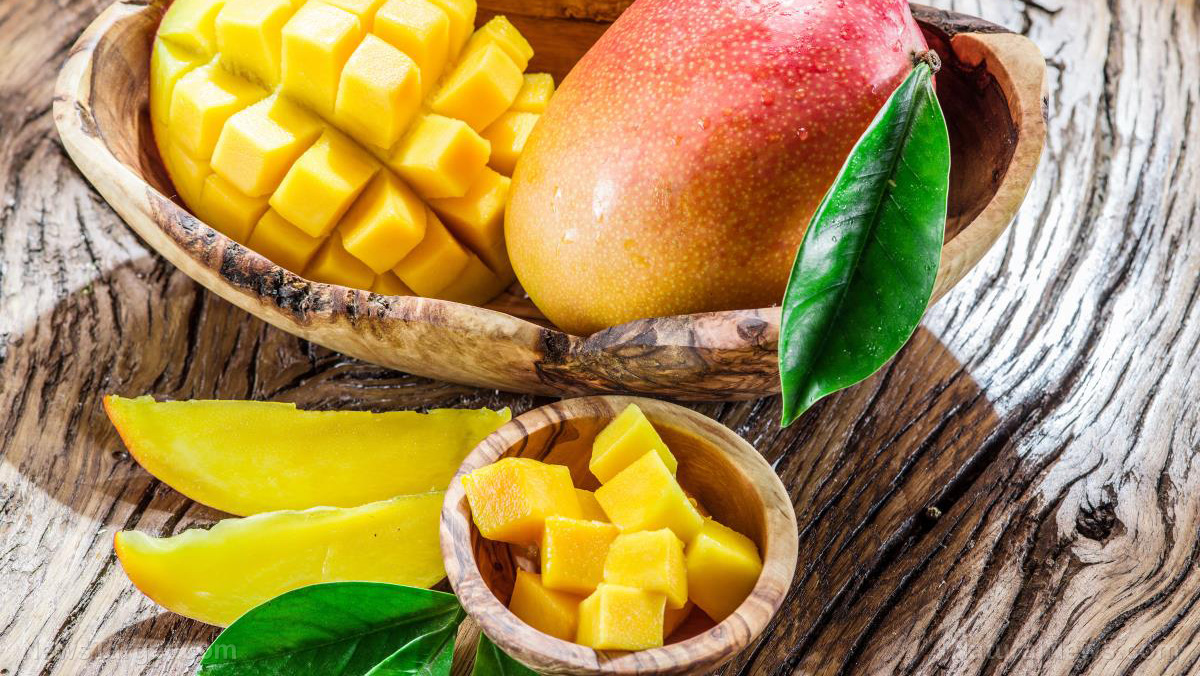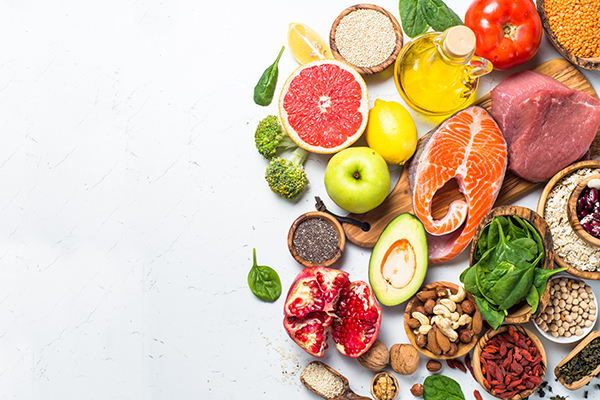 Parler
Parler Gab
Gab
- Known as the "king of fruits," mangoes (Mangifera indica) are celebrated for their rich flavor, vibrant color and nutritional benefits.
- Cultivated for over 4,000 years, mangoes originated in South Asia and hold cultural and religious significance in regions like India and Myanmar.
- Their golden-yellow to orange flesh is juicy, sweet and slightly tart, with a flavor reminiscent of peach, pineapple and citrus.
- Key compounds include beta-carotene, lutein, zeaxanthin, gallic acid, quercetin and mangiferin, which offer antioxidant and anti-inflammatory benefits.
- Mangoes are versatile in both sweet and savory dishes. Popular recipes include mango chutney and mango sticky rice.
The mango: A closer look
Mangoes are as diverse in appearance as they are in flavor. Their skin can range from green to yellow, orange or even red, often with a blush of multiple hues. The shape of a mango varies depending on the cultivar, with some being round, others being oblong and some being distinctly kidney-shaped.
Inside, the fruit has a golden-yellow to orange flesh that is juicy, fibrous and irresistibly sweet, with a hint of tartness that balances its flavor.
The taste of a ripe mango is often described as a harmonious blend of peach, pineapple and citrus, making it a universally beloved fruit.
Historical and cultural significance
The mango's origins trace back to South Asia, where it has been cultivated for over 4,000 years. Historical records suggest that mangoes were first domesticated in India and Myanmar, where they held cultural and religious significance. The fruit was later introduced to other parts of the world through trade and colonization.
By the 16th century, Portuguese explorers had brought mangoes to Africa and South America, and from there, their cultivation spread to tropical and subtropical regions worldwide.
Today, India remains the largest producer of mangoes, followed by countries like China, Thailand, Mexico and Indonesia. (Related: Here are 10 kiwifruit benefits you shouldn’t miss out on.)
Nutritional composition and phytonutrients
Mangoes are not just a treat for the taste buds, they are also a rich source of essential nutrients and bioactive compounds. Mangoes are packed with vitamins, particularly vitamins A and C (in the form of beta-carotene), which are known to support immune function and eye health. Mangoes also contain significant amounts of vitamin E, vitamin K and B-complex vitamins, including folate. In addition to vitamins, mangoes are a treasure trove of phytonutrients, which are plant-based compounds with antioxidant and anti-inflammatory properties. Key phytonutrients in mangoes include:- Carotenoids – The carotenoids in mango include beta-carotene, lutein and zeaxanthin, which can protect against cellular damage and support good vision.
- Fiber – Both soluble and insoluble fiber aids in digestion and promotes good gut health.
- Polyphenols – The polyphenols in mangoes include gallic acid, quercetin and mangiferin, all of which and combat oxidative stress and inflammation.
Health benefits and potential therapeutic
The nutritional composition of mangoes makes them a potent ally in preventing and managing various health conditions. Research suggests that regular consumption of mangoes may:- Protect vision – The carotenoids in mangoes, particularly lutein and zeaxanthin, are known to reduce the risk of age-related macular degeneration.
- Promote heart health – Mangoes contain potassium and magnesium, which help regulate blood pressure, and their polyphenols may reduce cholesterol levels.
- Support digestive health – The fiber in mangoes helps regulate bowel movements and prevent constipation.
- Boost immunity – The high vitamin C content of mangoes can enhance the body's ability to fight infections.
- Combat inflammation – Mangiferin, a unique antioxidant found in mangoes, has been shown to reduce inflammation and may help manage conditions like arthritis.
- Aid in weight management – Despite their sweetness, mangoes are relatively low in calories and high in fiber, making them a satisfying snack for those watching their weight.
Culinary applications and recipe ideas
Mangoes are a versatile ingredient that can be incorporated into a wide range of dishes, from sweet to savory. Here are a few recipe ideas that showcase the fruit's adaptability:- Mango chutney – A tangy condiment made with mango, vinegar, sugar and spices, mango chutney is ideal for serving with cheese or roasted meats.
- Mango salsa – A refreshing blend of diced mango, red onion, cilantro, lime juice and jalapeno, mango salsa is best paired with grilled fish or tacos.
- Mango lassi – This traditional Indian drink is made with mango pulp, yogurt and a touch of honey or sugar.
- Mango sticky rice – This Thai dessert features glutinous rice, coconut milk and ripe mango slices.
- Mango smoothie bowl – This nutrient-packed breakfast option is often topped with granola, nuts and fresh berries.
More related stories:
The star of wellness: Exploring the nutritional power of carambola (starfruit). Top antioxidant foods to combat oxidative stress from air pollution. Mike Adams Sermon 43: Shadow food and medicine vs. GOD’S FOOD AND MEDICINE. Sources include: Brighteon.AI NaturalNews.com Brighteon.comHow vitamin deficiencies fuel the severity of infectious diseases, from measles to pertussis
By Lance D Johnson // Share
“Cancer Decoded” on BrightU: Urotherapy and the connection between gut health and cancer prevention
By Jacob Thomas // Share
Echinacea: The immune-boosting powerhouse with a rich history
By Ava Grace // Share
Governments continue to obscure COVID-19 vaccine data amid rising concerns over excess deaths
By patricklewis // Share
Tech giant Microsoft backs EXTINCTION with its support of carbon capture programs
By ramontomeydw // Share
Germany to resume arms exports to Israel despite repeated ceasefire violations
By isabelle // Share










